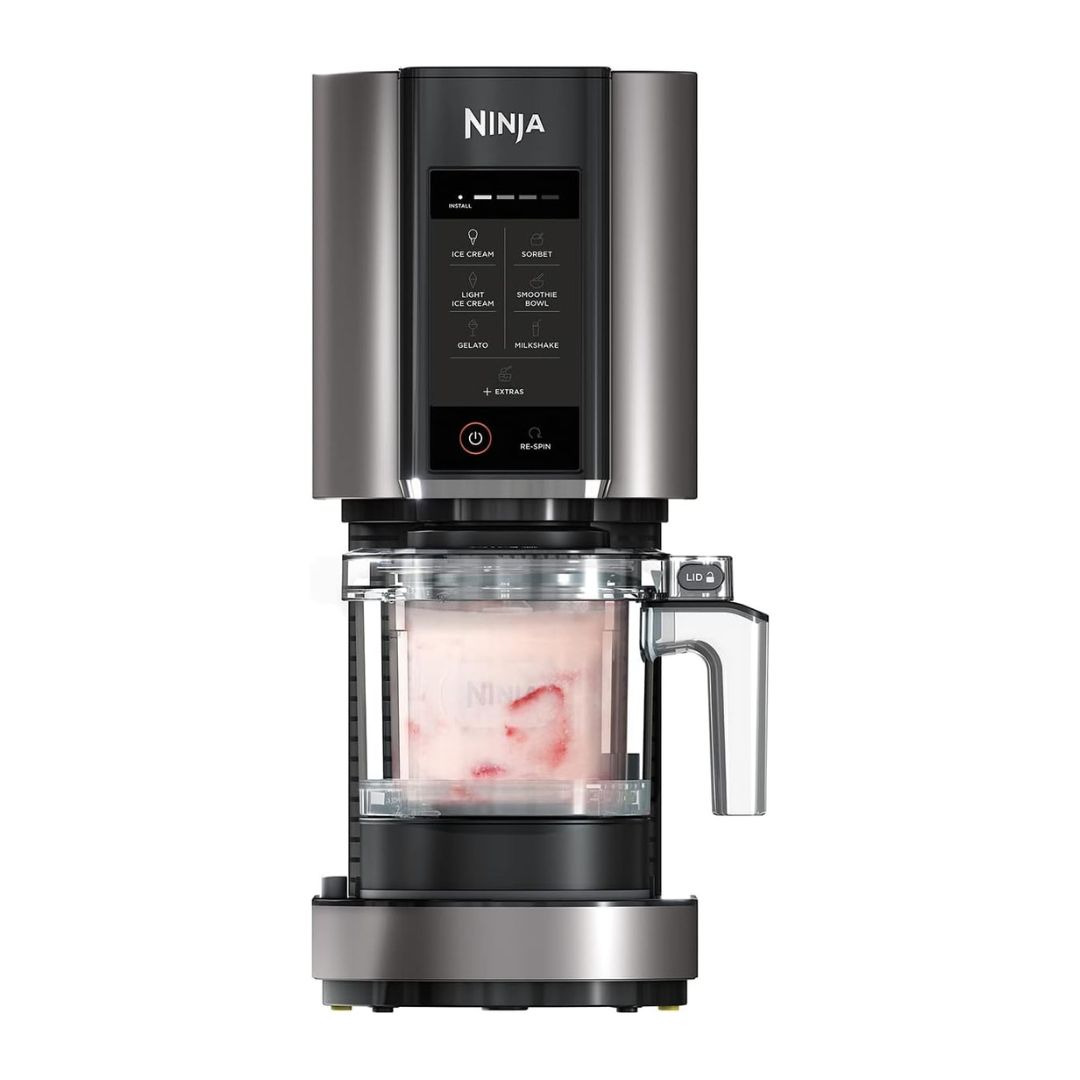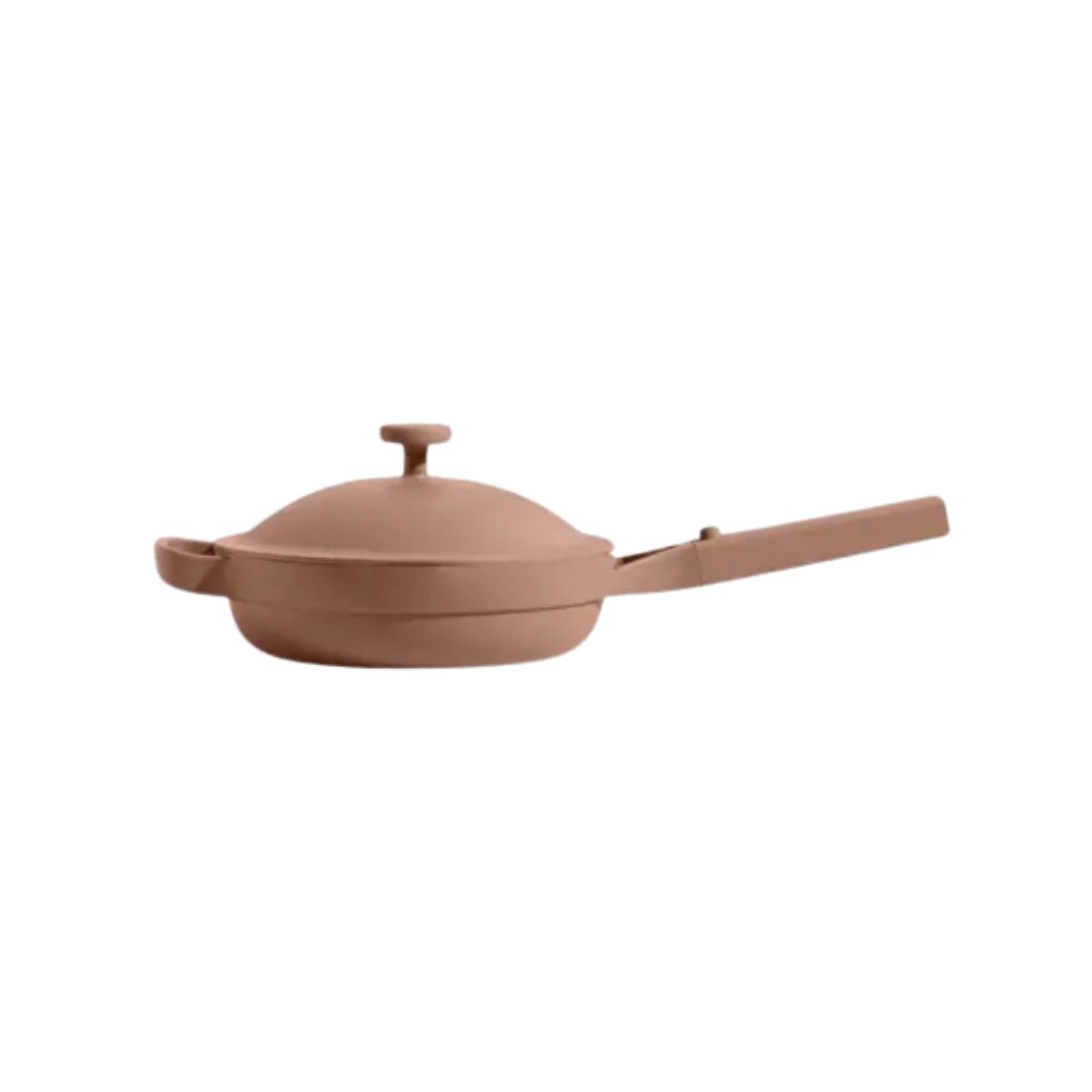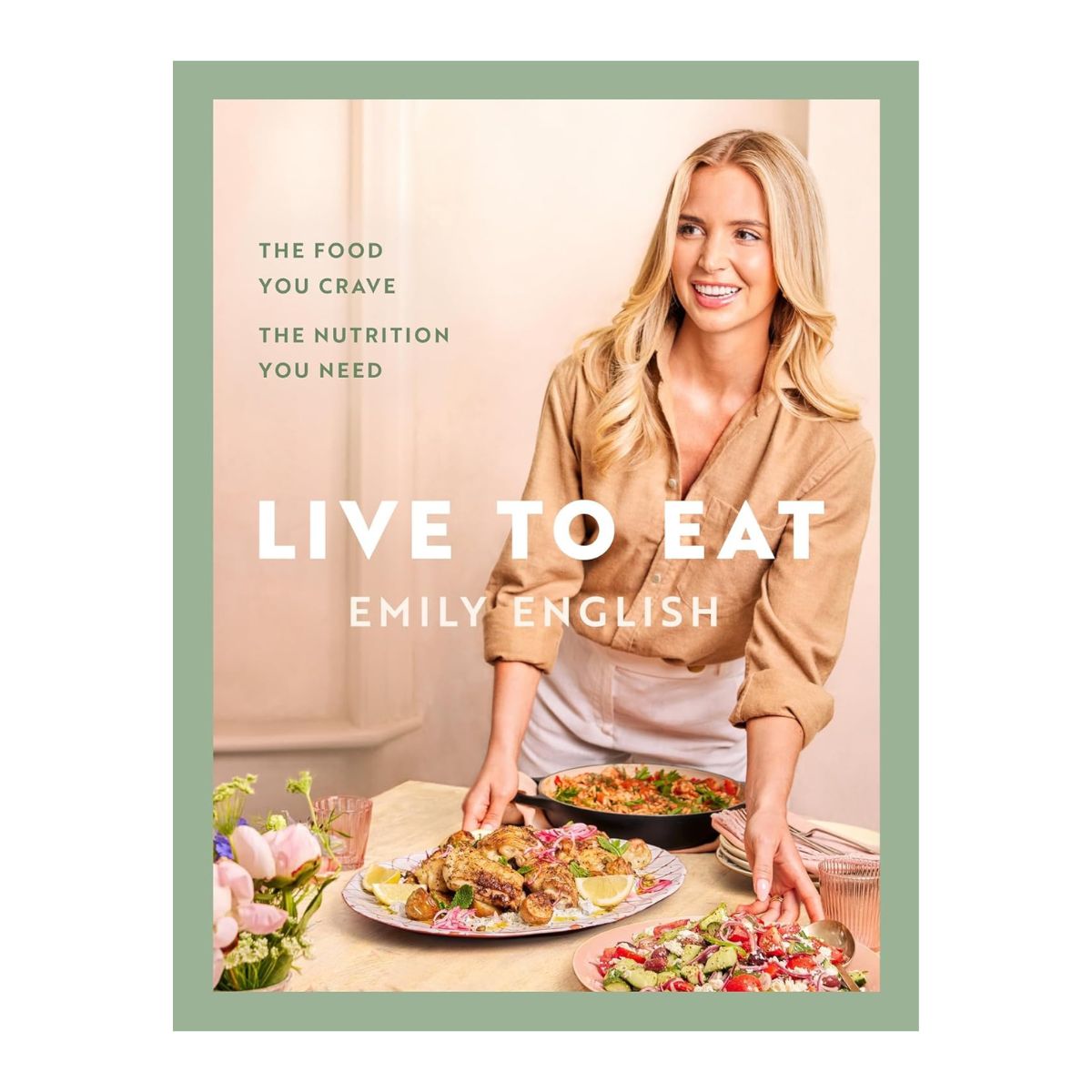I Swapped My Morning Coffee For a Protein-Rich Breakfast - and My Energy Levels Are, In a Word, Transformed
No more 3 pm slumps here.


Celebrity news, beauty, fashion advice, and fascinating features, delivered straight to your inbox!
You are now subscribed
Your newsletter sign-up was successful
If you’d asked me a month ago, I would have (a little sheepishly) described myself as a caffeine addict. My morning routine revolved around the coffee machine, and I was averaging three to four cups a day, with my first gulp taken on the way out the door, and my last poured around 3 pm. The result? I was jittery, regularly bloated, and battling a mid-afternoon energy crash that hit like clockwork.
There’s some important context here. I’m a classic morning person who gets her best thinking (and moving) done before 10 am, which often means packing in workouts and creative tasks before most people have even hit snooze. I say that with not a hint of boasting. It’s actually incredibly inconvenient, as it makes my mornings regularly feel hectic, with increasingly early alarms, and less and less time for breakfast. Caffeine became my crutch, filling the gap where a meal should have been and giving me the illusion of energy and focus. My second cup would arrive as soon as I hit my desk, and by mid-afternoon, a third, and sometimes fourth, was inevitable.
Deep down, I knew something wasn’t working. But like many of us, I felt stuck. “I don’t have time for breakfast,” I told myself, followed closely by, “I just need one more cup to get through the day.”
Then, last month, I started working with nutritionist Hannah Cartwright, and everything changed. Let me be clear: coffee isn’t the villain here. In fact, moderate coffee consumption has been linked to a lower risk of death from heart disease, cancer, stroke, diabetes and even respiratory and kidney disease. But using it as a replacement for a balanced breakfast? That’s a different story. Skipping breakfast altogether has been associated with painful periods and even the development of gynaecological disorders. On the flip side, studies show that eating a proper breakfast, especially one high in protein, can help regulate hormones, boost metabolism, increase satiety, and keep you feeling fuller for longer.
With all that in mind, I couldn’t ignore the obvious any longer: the fatigue, bloating and mood dips might actually have had less to do with stress or sleep, and more to do with how I was fuelling my mornings. I was curious: could something as simple as swapping my first coffee for a protein-rich breakfast really make a difference?
Interested to see how I got on? Keep reading. And if you’re curious about the impact of caffeine on your own health, I’d recommend checking out fellow Marie Claire UK staffer Rebecca’s honest experience of giving up coffee for a month. Looking for some breakfast inspo? Our guide to the best healthy breakfasts is packed with ideas that’ll keep you satisfied ‘til lunch.
I switched my morning coffee for a protein-rich breakfast - and the results amazed me
What is considered a protein-rich breakfast?
These days, wellness buzzwords get thrown around so often that they can start to lose their meaning, something we’re acutely aware of here at Marie Claire UK. So, before we get any further into the how and why, let’s get clear on what a protein-rich breakfast actually looks like.
Celebrity news, beauty, fashion advice, and fascinating features, delivered straight to your inbox!
According to nutritionist Charlotte Phillips, “a protein-rich breakfast is one that provides a substantial amount of high-quality protein, which is typically around 20g–30g.” Sounds simple enough, right? But unless you're someone who already tracks your macros, it can be tough to envisage how that actually looks on your plate.
For most people, reaching the 20 to 30g mark won’t require a total reinvention of their morning routine, and will be more about making some small, smart adjustments. It’s also worth remembering that not all your protein needs to come from the obvious sources. Even ingredients that aren’t typically labelled ‘protein’, like toast or oats, still contribute to your total intake. That’s why pairing two large eggs (which provide around 12g of protein) with something like seeded toast can make a big difference.
For inspiration, Cartwright offers a few easy examples: “20 to 30g of protein could look like two to three eggs on seeded toast, Greek yoghurt with nuts and berries, or a protein smoothie made with milk, protein powder, and nut butter.”
What are the benefits of having a protein-rich breakfast?
As someone who used to rely on caffeine for a morning hit of energy and focus, I was intrigued to learn that protein could have been doing the same job all along. As the experts explain, it’s far more than just a muscle-building nutrient.
“Starting your day with enough protein can reduce cravings, boost energy, and help with focus and mood,” explains Cartwright. “It really is an incredible macronutrient, helping to keep you full, supporting blood sugar balance, and providing the building blocks your body needs to repair and thrive.”
Phillips agrees, adding that protein plays a key role in keeping our energy levels stable. “Protein slows down the absorption of carbohydrates,” she explains, “which is how it helps us to maintain steady energy levels. At the same time, it’s a really satiating nutrient, which can help us to avoid overeating later in the day.”
It doesn’t stop at physical energy, either. When it comes to mental focus, protein is just as important. “Protein is essential for cognitive function as well as muscle repair,” says Phillips, “which is beneficial whether you’re an athlete, a busy professional, or simply managing daily life.”
Is drinking coffee on an empty stomach actually bad for your health?
There’s a lot of noise on social media about the supposed dangers of drinking coffee on an empty stomach. But how much of it is actually rooted in science? I know from personal experience that my morning routine wasn’t leaving me feeling my best, but I couldn’t help wondering: was my coffee habit really to blame?
“The jury is still out on whether or not we should be filling our stomachs before drinking our morning coffee,” says Phillips, who explains that there’s currently limited research on the topic. That said, both experts agree that having something to eat before your caffeine fix can help your body handle it more comfortably, especially if you have a sensitive stomach.
“Coffee’s natural acidity may stimulate the production of gastric acid when consumed without any food, potentially leading to discomfort, heartburn, or digestive irritation,” Phillips explains. “There’s also the fact that drinking coffee before eating could exacerbate the natural cortisol spike that occurs upon waking, possibly contributing to increased stress levels and metabolic imbalances throughout the day.”
Ultimately, whether or not you should drink coffee on an empty stomach comes down to individual preference, at least until the research is more conclusive. As Phillips puts it, “Not everyone will experience negative effects when drinking coffee on an empty stomach, but for those that do, eating a balanced meal before your coffee can serve as a buffer, ensuring optimal nutrient absorption and providing a more stable release of energy.”
What are the best coffee alternatives?
For me, my morning coffee was never just about the caffeine fix - it was also a ritual I loved. There’s something comforting about sipping a warm drink as the day begins, and I didn’t want to lose that small but significant part of my routine.
The good news? With so many alternatives now available, I didn’t have to. As Cartwright explains: “Decaf coffee is a great switch if you’re looking for the same ritual and taste. Matcha is also a brilliant switch because it’s lower in caffeine and rich in antioxidants. And if you’re cutting caffeine entirely, something like warm lemon water is a lovely, soothing option.”
Phillips agrees, offering a range of swaps to suit different tastes and energy needs.
1. Green tea or matcha
“These options give you a gentler caffeine boost along with antioxidants that support overall health,” she explains.
2. Herbal teas
“Varieties like peppermint, chamomile or rooibos are naturally caffeine-free and can provide a soothing start to your day.”
3. Chicory coffee
You may not have heard of this one, but according to Phillips, “this roasted, ground, caffeine-free alternative somewhat mimics the flavour of coffee without its acidity or caffeine content.”
4. Golden milk
For me, this is a favourite, so I was glad to see it on Phillips’ list. “A warm blend of turmeric, spices and milk, golden milk offers anti-inflammatory benefits as well as a comforting taste,” she tells us.
5. Mushroom mixes
“These beverages mix a small amount of caffeine with functional mushrooms,” says Phillips. The idea, she explains, is that they “provide a smoother, potentially more balanced energy boost, alongside improved cognitive function and mental clarity.”
I swapped my morning coffee for a protein rich breakfast - my thoughts
Week One
To make life a little easier, I decided to kick off the challenge on a work-from-home day, where mornings tend to be calmer and I have a bit more time to play with. Rather than rolling out of bed and heading straight for the coffee machine (my usual autopilot move), I start with my skincare routine and get dressed, easing myself into the day before heading downstairs.
I’m keeping things simple to begin with: two poached eggs on slices of walnut pavé bread, alongside a large glass of water (something I’m notoriously bad at remembering to drink). I’m pleasantly surprised by how quickly it all comes together. From cooking to plating up, the whole process takes 15 minutes, and even with sitting down to eat, I’ve only added about half an hour to my usual routine. I settled at my desk with a decaf coffee in hand, feeling quietly optimistic.
Normally, by 11 am, my stomach would be rumbling and I’d be reaching for coffee number two. But thanks to the combination of a proper breakfast and having my water bottle parked next to my laptop, it’s midday before I even think about food again. That said, I do notice a dull headache forming behind my eyes - a familiar, foggy kind of ache I remember from my athlete days, when I’d cut caffeine two weeks before a race to maximise its effect on competition day.
Turns out, caffeine withdrawal is a very real thing. Around 50% of regular coffee drinkers experience symptoms, most commonly headaches, which can last anywhere from two to nine days. By mid-afternoon, even after a decent lunch, my concentration dips and I’m craving the sharp hit of a coffee. Determined to stick it out, I reach for another decaf, but the rest of the day feels like a bit of a slog.
Days two and three follow a similar pattern. The headache lingers, and I do find myself wanting a mid-afternoon snack where I’d usually rely on caffeine to carry me through. But on the upside? My digestion feels like it’s had a complete reset. By day three, I realise I’m no longer experiencing any mid-morning bloating and there’s no hint of a stomach cramp. I feel... normal, and for me, that’s a revelation in itself.
After three consecutive days of eggs (scrambled, poached and boiled - I’m nothing if not committed!), I switch things up on day four with a Greek yoghurt bowl piled high with strawberries, blueberries, raspberries and banana. I top it with homemade granola, cinnamon and a drizzle of honey. It’s light, fresh and easy to throw together, which is a win on days like this one, where I’ve booked in an early morning yoga class and need to get out the door quickly. But while I love the sweeter option in the moment, I do notice that I feel a bit hungrier mid-morning compared to the days I’d started with eggs. But the good news? Today, the headaches have lifted.
By day six, I’m feeling surprisingly great. I try overnight oats, with a mix of oats, frozen blueberries, peanut butter and Greek yoghurt, all topped off with a squeeze of lemon and a drop of vanilla, which makes for a convenient grab-and-go option that tastes a little like a lemon cheesecake. Not only do I feel fuller and more energised throughout the day, but I also notice that I’m getting more done. Tasks that had dragged earlier in the week suddenly feel easier, and my energy is, for the first time in a long while, consistent. I can honestly report that there’s no slump, no jitters, and more productivity than I’ve felt in months.

One of Ash's high protein breakfasts during her challenge
Week Two
By week two, I’m fully into the swing of things. I’ve settled into a rhythm with my new routine and, surprisingly, I’m not missing caffeine at all. My overall hot drink intake has dropped too, and I’m now averaging one or two cups a day, compared to my usual three or four. The increased fullness from my breakfasts means I’m no longer reaching for that mid-morning or mid-afternoon coffee fix, and instead, I have one decaf after breakfast and another after lunch.
What I haven’t quite nailed yet is prepping my breakfasts the night before. As a result, I’ve noticed a shift in my morning schedule. I’m doing fewer early workouts, simply because breakfast now takes priority. To make up for this, I’ve been fitting in more home-based Pilates and yoga sessions rather than racing to the studio. Initially, I worried that reducing my morning movement would leave me feeling flat, as I usually rely on exercise to set me up for the day. But interestingly, I’ve found I now have more energy in the evenings. Instead of rushing home tired and starving, I’ve been heading to the gym post-work - something I rarely managed before.
Day ten brings a logistical challenge: I’ve booked a boxing class and need to be out the door by 6.30 am. Cooking isn’t realistic, so I opt for a high-protein smoothie from a recipe shared by my nutritionist, Hannah. I pour it into a takeaway cup to sip on the go (no aesthetic smoothie bowl here), but it still hits the spot. It’s delicious, and I really notice how the addition of nut butter keeps me fuller for longer. It’s a clear sign that my week-one sweet breakfasts might have been slightly low on the protein I actually needed to sustain me through the day.
By the end of the two-week trial, I am, in a word, converted. I’m genuinely amazed at how quickly I’ve been able to shake my caffeine habit, and the improvements I’ve noticed in both my energy levels and digestion have been, quite honestly, life-changing. Where I once believed I simply wasn’t hungry in the morning, breakfast now feels like a non-negotiable. I can’t imagine leaving the house without it.
The best part? It feels both sustainable and enjoyable. I’ve really loved experimenting with new breakfasts, and while it does require a little more organisation, I don’t feel like I’m sacrificing anything. Yes, there are mornings where prioritising breakfast means skipping a workout, but this hasn’t negatively impacted my energy, mood or body composition (not that the latter matters). If anything, I feel better than ever.
The verdict? Unanimous. This routine is here to stay.

MC-UK breakfast essentials

If you’re going to be trying out any smoothie bowls within your new breakfast routine, a good blender is essential, and they don’t come better than a Ninja Creami. Perfect for making thick smoothie bowls and homemade ice cream, it’s definitely on the pricier side, but a worthwhile investment if you’re keen to get creative.
Can I still fit in a high protein breakfast if I’m always on-the-go?
“Definitely,” says Hannah Cartwright, Nutritionist and Founder of The Nourishu Method, when asked whether a high-protein breakfast is still possible on a packed schedule. She suggests quick options like overnight oats mixed with protein powder, or pre-boiled eggs paired with oatcakes for a more savoury start.
Nutritionist Charlotte Phillips agrees. “It is entirely possible to fit in a high-protein breakfast on the go, even if your mornings are hectic,” she says. “A quick and nutritious option is a smoothie made with a scoop of protein powder, your choice of milk, a handful of spinach, fruits like bananas or berries, and a tablespoon of nut butter, blended into a quick-and-easy portable meal for your morning commute.”
If you have time for a little prep the night before, Phillips recommends egg muffins. “Mix whisked eggs with vegetables such as spinach or bell peppers, adding a sprinkle of cheese or lean meat for an extra punch of flavour and protein. Bake in the oven the night before, and then quickly reheat in the morning.”
And for those mornings when even blending or reheating feels ambitious? “Protein bars, specifically those formulated with a high protein content and minimal added sugars, can offer a convenient solution,” says Phillips.
For more breakfast inspiration, including on-the-go options, check out our guide to team MC UK's go-to Em The Nutritionist recipes.

A former heptathlete, Ashleigh is a freelance journalist, specialising in women’s health, travel and culture, with words in Condé Nast Traveller, Marie Claire, Women’s Health, Stylist, Dazed and Glamour. She’s also the Co-Founder of Sunnie Runners, an inclusive London based run club.

